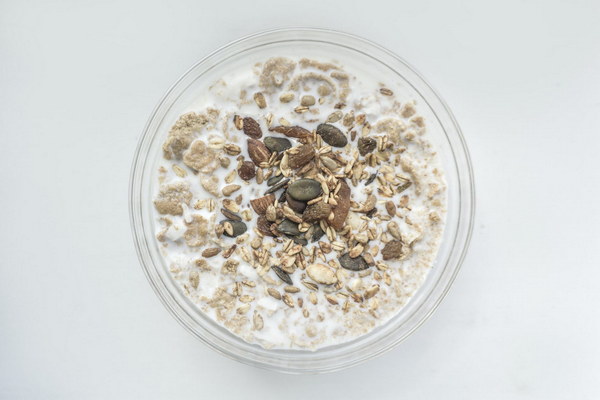Unlocking Optimal Health Essential Nutrients for Body Restoration
In the quest for a healthier lifestyle, understanding what our bodies need to restore and rejuvenate is crucial. Nutritional deficiencies can lead to a wide range of health issues, from fatigue and weakness to chronic diseases. To achieve optimal health, it is essential to identify the key nutrients that support our body's functions and incorporate them into our diet. This article will explore the essential nutrients needed for body restoration and how to ensure they are included in your daily meals.
1. Protein: The Building Blocks of Life
Protein is vital for the growth, repair, and maintenance of tissues in the body. It is also a key component of enzymes, hormones, and immune cells. Good sources of protein include lean meats, fish, eggs, dairy products, legumes, and nuts. Aim to consume a balanced amount of protein throughout the day to support muscle strength and overall health.
2. Vitamin D: The Sunshine Vitamin
Vitamin D, often called the sunshine vitamin, is essential for bone health, immune function, and regulating the absorption of calcium and phosphorus. Sunlight is the primary source of vitamin D, but it can also be obtained through fortified foods and supplements. Include fatty fish, egg yolks, and fortified milk, cereals, and orange juice in your diet to ensure an adequate intake of vitamin D.
3. Iron: The Energy Molecule

Iron is a mineral that carries oxygen in the blood, which is crucial for energy production and overall health. Iron deficiency can lead to fatigue, weakness, and impaired cognitive function. Good dietary sources of iron include red meat, poultry, fish, legumes, and leafy green vegetables. To enhance iron absorption, pair iron-rich foods with vitamin C-rich foods, such as oranges, strawberries, and bell peppers.
4. Calcium: The Stronghold of Bones
Calcium is essential for maintaining strong bones and teeth, as well as supporting nerve and muscle function. Dairy products, leafy green vegetables, and fortified plant-based milk are excellent sources of calcium. Aim for at least 1,000 milligrams of calcium per day to support bone health and prevent osteoporosis.
5. Omega-3 Fatty Acids: The Brain and Heart Heroes
Omega-3 fatty acids are essential for brain function, reducing inflammation, and supporting heart health. Fish, nuts, seeds, and flaxseeds are rich in omega-3 fatty acids. Aim to consume fatty fish such as salmon, mackerel, and sardines at least twice a week to ensure an adequate intake of these beneficial fats.
6. Magnesium: The Relaxation Mineral
Magnesium is involved in over 300 biochemical reactions in the body, including muscle and nerve function, energy production, and maintaining a healthy immune system. Magnesium deficiency can lead to fatigue, muscle cramps, and sleep disturbances. Good sources of magnesium include whole grains, nuts, seeds, legumes, and dark chocolate. Aim for 400-420 milligrams of magnesium per day for women and 310-320 milligrams for men.
7. Vitamin B12: The Energy Vitamin
Vitamin B12 is essential for red blood cell production, DNA synthesis, and nerve function. It is primarily found in animal products such as meat, fish, dairy, and eggs. For individuals who follow a vegetarian or vegan diet, it is crucial to consume fortified foods or supplements to avoid vitamin B12 deficiency, which can lead to fatigue, weakness, and neurological damage.
In conclusion, incorporating a variety of nutrient-dense foods into your diet is essential for body restoration and optimal health. By focusing on the key nutrients mentioned in this article, you can ensure that your body is getting the support it needs to function at its best. Remember to consult a healthcare professional before making any significant changes to your diet or supplement regimen.









